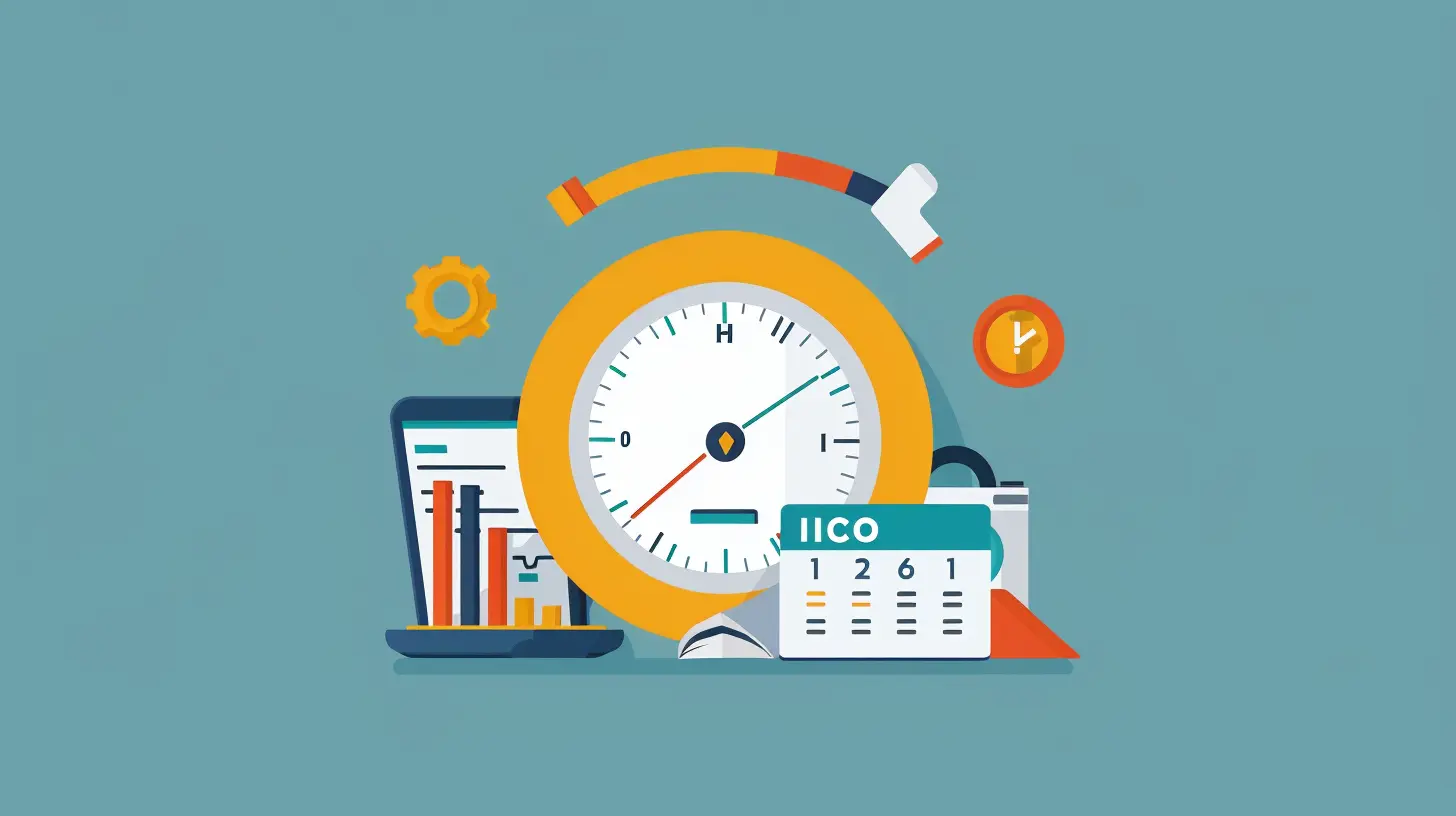Simple Monthly Habits to Boost Your FICO Score
25 August 2025
If your FICO score is a number you avoid checking like an ex’s Instagram, you’re not alone. But let’s be real—your credit score is a major player in your financial well-being. It dictates how easily you can snag a loan, get approved for a mortgage, or even rent an apartment. A low FICO score can cost you thousands in interest, while a high one opens doors to financial freedom.
Good news? You don’t need a financial guru or a magic wand to improve your score. A few simple monthly habits can push your numbers in the right direction. Let’s dive into some easy-peasy ways to give your FICO score the glow-up it deserves.

📌 1. Pay Your Bills on Time—Every. Single. Month.
Think about your credit score like your financial reputation. If you’re late on payments, lenders start side-eyeing you. In fact, payment history accounts for 35% of your FICO score—making it the single most important factor.🚀 How to Make On-Time Payments a Habit:
- Automate it. Set up auto-pay for your credit cards, loans, and other bills so you never forget.- Set reminders. Use your phone calendar or a budgeting app to send you nudges.
- Budget ahead. If money is tight, prioritize minimum payments to avoid late fees and dings on your score.
Even if you miss the due date by a day, it could hurt your credit. So, treat payments like a VIP event—you don’t want to be late!

📌 2. Keep Your Credit Utilization Low
Credit utilization is the ratio of how much credit you’re using compared to your total credit limit. The golden rule? Keep it under 30%—but if you can swing 10% or lower, even better.💡 Ways to Keep Utilization in Check:
- Pay down balances early. Don’t wait for the due date—pay off small chunks throughout the month.- Request a credit limit increase. More available credit (without more spending) lowers your utilization ratio.
- Use multiple cards wisely. Spread expenses across cards rather than maxing one out.
Think of credit utilization like a buffet plate—just because you can pile it high doesn’t mean you should. Keep some breathing room!

📌 3. Don’t Close Old Credit Cards
Got a credit card you never use? Tempted to close it? Hold up! Keeping older accounts open helps your credit age, which makes up about 15% of your FICO score.Old accounts show lenders you have a long history of managing credit responsibly. The longer the history, the better your score.
✅ What to Do Instead:
- Use old cards occasionally. Buy a coffee or book, then pay it off.- Avoid annual fee cards you don’t use. If you must close one, choose a newer one.
Think of old credit lines like friendships—you don’t talk every day, but keeping them around adds value to your life.

📌 4. Limit Hard Inquiries
Applying for a credit card, mortgage, or loan triggers a hard inquiry, which temporarily lowers your score. Too many in a short time makes lenders wary.🔍 Smart Inquiry Strategies:
- Space out applications. Avoid applying for multiple credit cards at once.- Prequalify first. Some lenders let you check offers without affecting your score.
- Stick to what you need. Avoid opening store cards just for that “10% off” discount.
Every hard inquiry is like a tiny ding! on your score—use them sparingly.
📌 5. Automate a Small Extra Payment
Making extra payments (even small ones) can reduce your credit utilization faster, helping your score climb over time.💸 Easy Ways to Add Extra Payments:
- Round up payments. If your minimum due is $25, pay $30.- Use windfalls wisely. Got a tax refund or work bonus? Throw a chunk at your credit card debt.
- Split payments in two. Pay once when you get your paycheck and again before the due date.
Every extra payment is like chipping away at an iceberg—the smaller it gets, the less it weighs your score down.
📌 6. Check Your Credit Report Monthly
You wouldn’t ignore your bank balance, so don’t ignore your credit report either! Checking your report helps you catch mistakes, fraud, and areas for improvement.📜 How to Stay on Top of Your Report:
- Use free credit report services. Websites like AnnualCreditReport.com let you check your report for free annually from each bureau.- Watch for errors. If something looks fishy, dispute it ASAP.
- Track changes. Seeing your score go up (or down) helps you adjust your habits accordingly.
Think of your credit report as a financial selfie—you want it to reflect your best side.
📌 7. Keep a Low Balance-to-Limit Ratio
Even if you always pay your credit card in full, running up high balances during the month can temporarily spike your utilization. This could drop your score when lenders check it.⚖️ Fix This by:
- Using multiple cards. Spread spending so no single card carries a high balance.- Paying before the statement closes. Credit utilization is often calculated based on your monthly statement balance.
Low balances = better score. It’s that simple.
📌 8. Become an Authorized User
If you have a trusted family member or friend with excellent credit, becoming an authorized user on their credit card can give your score a boost.🔑 How This Works:
- You don’t even have to use the card—just being added can help.- Their good payment history and low utilization can positively affect your score.
- It’s risk-free for you since you’re not responsible for payments.
This is like getting VIP access to good credit history—it’s a shortcut worth considering.
📌 9. Diversify Your Credit Mix
Lenders like to see that you can handle different types of credit responsibly. Having a mix of credit cards, loans, and retail accounts can slightly boost your score.🎭 Ways to Mix It Up:
- If you only have credit cards, consider a small personal or credit-builder loan.- If you have loans but no credit card, getting one and using it wisely can help.
A diverse credit mix shows lenders you’re a well-rounded borrower, kind of like adding different exercises to your workout routine.
🚀 Final Thoughts
Boosting your FICO score isn’t rocket science. It’s about consistency, smart habits, and avoiding mistakes that can drag your score down. By making just a few tweaks to your financial routine, your credit score will thank you—big time.So, start today! Your future self (and your wallet) will be glad you did.
all images in this post were generated using AI tools
Category:
Fico ScoreAuthor:

Angelica Montgomery
Discussion
rate this article
1 comments
Fennec Adkins
Wow, who knew boosting your FICO score could be as easy as brushing your teeth? Next, they'll say to drink water!
September 13, 2025 at 2:38 AM

Angelica Montgomery
Absolutely! Small, consistent habits can make a big difference in your FICO score—just like brushing your teeth for dental health!


